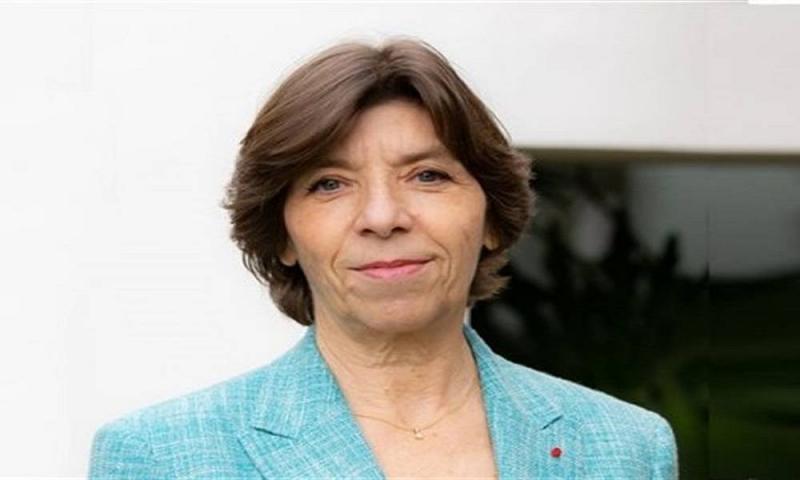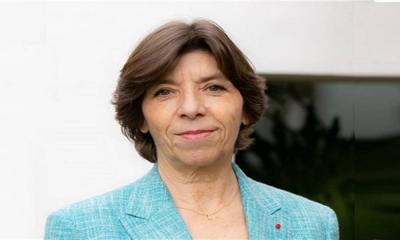French Foreign Minister Catherine Colonna, during her tour in Beirut following her visit to Israel, emphasized that "the situation in the south is dangerous," noting that "the visit underscores that solutions should be achieved through diplomacy."
Lebanese Prime Minister Najib Mikati emphasized during his meeting with Colonna today at the Grand Serail the "priority of stopping the Israeli aggression on Lebanon and implementing Resolution 1701 in both its letter and spirit, contingent upon Israel's commitment to its provisions."
In the meeting, attended by the French Ambassador to Lebanon, Hervé Magro, and advisors to the Prime Minister, including former Minister Nicolas Nahas and Ambassador Botros Assaker, Colonna highlighted "the necessity of de-escalation on the southern borders from both sides and reaching an agreement to find a solution that paves the way for establishing lasting stability in the south."
Colonna urged the French embassy "to encourage all Lebanese parties to work on selecting a president as soon as possible." She continued: "I returned because the situation is dangerous, and there is a fear of igniting the region with a very high level of tension on both sides of the Blue Line."
She stated, "Due to the dangerous situation, I went to Israel yesterday to say that diplomacy and de-escalation are the solution. Lebanon is a country dear to France, and we must return to Resolution 1701, which should lead to an improvement in the situation on the ground. We have sent messages to Hezbollah that the resolution must be implemented by both sides, which is not currently happening."
She viewed the extension of the army commander’s term positively but added, "This is not enough for Lebanon; in this tense time, we must act with a sense of responsibility." Regarding the Gaza war, she noted that "what happened on October 7 was 'barbaric'" and asserted, "Israel must respect international law during the war."
Colonna began her visit to Beirut with a meeting with the Speaker of Parliament Nabih Berri, attended by the Director for North Africa and the Middle East at the French Foreign Ministry, Anne Griot, and several advisors from the French Foreign Ministry, as well as the French Ambassador to Lebanon, Hervé Magro. They discussed the general situations in Lebanon and the region in light of the rising Israeli assaults on Gaza and Lebanon.
Colonna, who did not meet with Hezbollah officials during her visit, urged both sides to adhere to the resolution and start taking steps to ensure its full implementation. She said, "Neither side is implementing it. Both sides accepted it. We need to engage in some form of de-escalation. We cannot continue this way without a significant risk of escalation."
Regarding her visit to Israel, the French Foreign Minister announced that France will impose measures on Israeli settlers attacking Palestinians in the occupied West Bank. This statement came the day after Colonna met with Palestinian farmers in Ramallah following recent attacks on them by settlers.
The resolution, issued at the end of the 2006 war between Hezbollah and Israel, stipulated the absence of any armed groups between the Litani River in Lebanon and the border. The resolution prohibited all unauthorized weapons between the Litani River and the borders monitored by the UN between Israel and Lebanon. According to the resolution, the Lebanese army is responsible for security on its side of the border in an area where the entry of any other armed forces, including Hezbollah, is prohibited.




